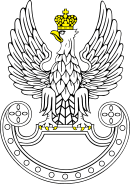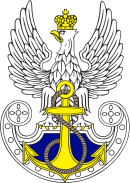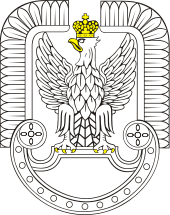Skirmish at Bender
The Skirmish at Bender (Swedish: Kalabaliken i Bender and Finnish: Benderin kalabaliikki) was devised to remove Charles XII of Sweden from the Ottoman Empire after his military defeats in Russia. It took place on 1 February 1713 on Ottoman territory, in what is now the town of Bender, Moldova.
History
After the Swedish defeat at the Battle of Poltava on 27 June 1709 and the surrender of most of the Swedish army at Perevolochna three days later, Charles XII of Sweden fled together with a few hundred Swedish soldiers and a large number of Cossacks to the Ottoman Empire, where they spent a total of five years.
On 31 January 1713, Turkish artillery fired on the Swedish camp.
On 1 February, the Ottoman forces, commanded by the Serasker of Bender, attacked the camp. Together with some 40 soldiers, Charles XII stood against many hundreds of Turks. The Life Guard Axel Erik Roos in particular distinguished himself during the skirmish and accounts tell that he saved the king's life three times during the day. The king himself killed at least one Ottoman soldier with his sword in hand-to-hand combat when he and Roos came under attack by 3 Ottomans. During parts of the fighting, Charles was also actively sniping with a carbine against the assaulting enemy from a window in his sleeping quarters, positioned in the building where the Swedes had taken up their defense. The fighting lasted for over 7 hours and the Ottomans eventually used both artillery and fire arrows when the initial assaults were beaten back; the later method proved to be effective. The fire arrows set the building's roof on fire and forced the defenders to abandon it, the fighting then came to an abrupt end when the king tripped on his own spurs while exiting the burning house. He was assaulted by scores of Ottoman soldiers who managed to capture him and the remaining fighters.[6]
Aftermath
After some time as a prisoner, Charles XII and his soldiers were released when news about the Swedish victory in the Battle of Gadebusch reached the Ottomans. Charles then started to plan his trip back to Sweden.
Already in 1718 he led an army to conquer Norway in The Great Northern War, which ended in Swedish retreat upon the kings death.
Etymology
In Turkish the word kalabalık means crowded, which after the incident has become a Swedish and Finnish loanword, kalabalik, with the meaning "confusion" or "great disorder".
In popular culture
The Skirmish at Bender was the inspiration for Mats Ahren's 1983 film comedy Kalabaliken i Bender. Even in the early 1920s a major motion picture was produced with scenes from the skirmish.
External links
References
Notes
- Browning, Oscar. Charles XII of Sweden. London, Hurst & Blackett, 1899. pp. 269–281
- Peter From. Kalabaliken i Bender. Karl XII:s turkiska äventyr. Historiska Media, 2009. p. 194
- Anders Fryxell. Berättelser ur Swenska historien, Volym 16. 1856. p. 120
- Peter From. Kalabaliken i Bender. Karl XII:s turkiska äventyr. Historiska Media, 2009. p. 160
- Anders Fryxell. Berättelser ur Swenska historien, Volym 16. 1856. p. 119
- Karl XII i Turkiet Archived August 12, 2010, at the Wayback Machine
Bibliography
- Massie, Robert K. (October 1981). Peter the Great: His Life and World. New York City: Ballantine Books. ISBN 0-345-29806-3.



